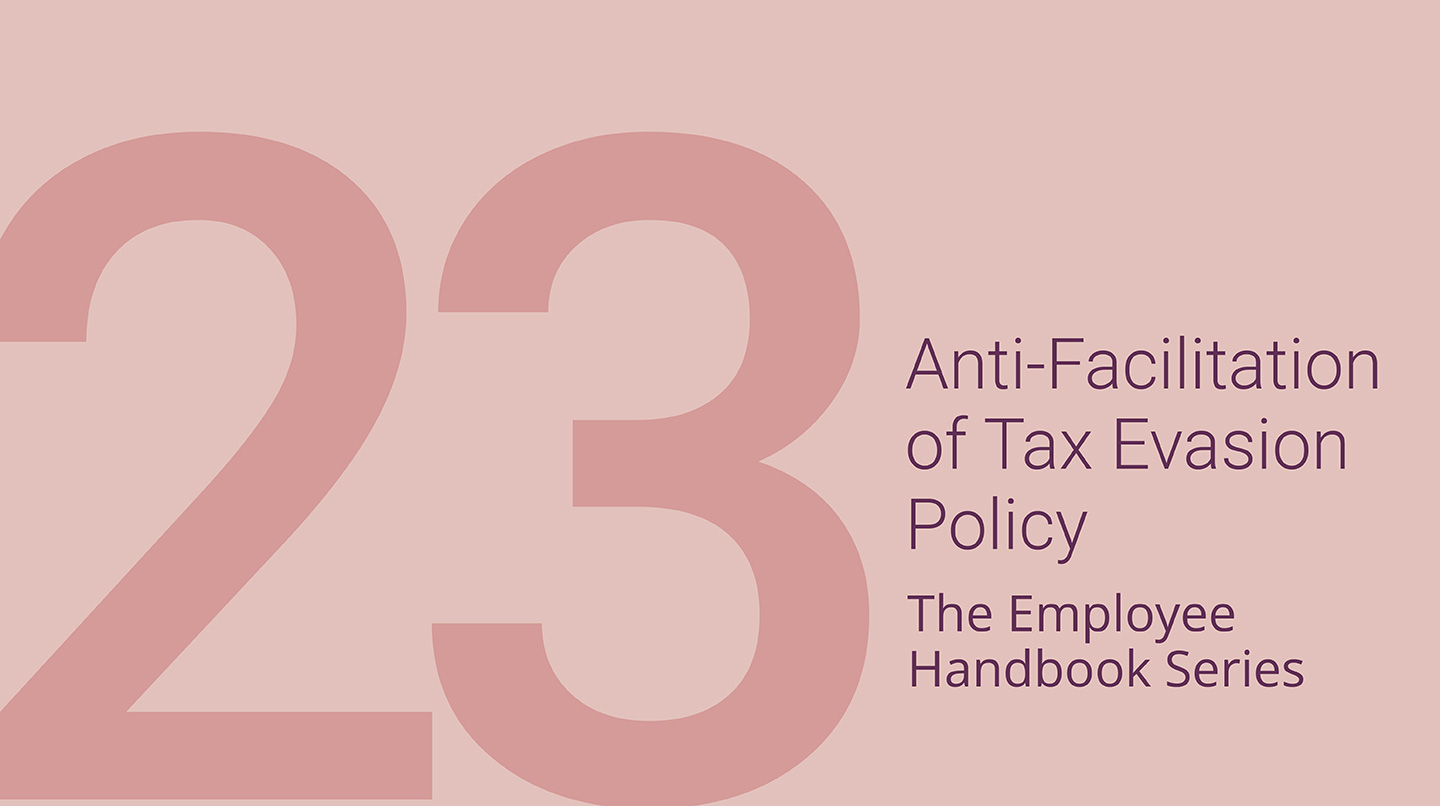Introduction to Anti-facilitation of tax evasion policy
As a matter of law employers must give their employees a written document which covers the key terms of the employment relationship. On top of this, it’s good practice for employers to have a staff handbook which includes the non-contractual policies and procedures. The staff handbook will sit alongside the employee’s terms and conditions of employment and the employer can use it to manage situations within the workplace and help avoid disputes.
Anti-facilitation of tax evasion policy
Employers are advised to put in place a policy covering the prevention of the facilitation of tax evasion. As well as providing guidance and setting out expectations, it may also help the employer establish the “reasonable prevention procedures” defence to the corporate offences. The policy should extend to employees, workers or other associated persons of the employer.
We’ve prepared a draft Anti-facilitation of Tax Evasion Policy, which sets out what is expected from employees and other workers. You can click here for our example policy to get you started, but you’ll need to make sure that any Anti-facilitation of Tax Evasion Policy you put in place sets out how you wish to deal with the potential issues you may face. To allow you to do this, you will first need to properly understand your needs as an employer. To get that understanding, you should undertake a detailed risk assessment of the products and services you offer, as well as your internal systems and any client data that might be used to facilitate tax evasion. Your risk assessment should identify and describe any potential tax evasion facilitation risks, evaluate the potential significance of the risks identified, and provide an indication of the relative importance of each risk within the organisation.
This article and the policy are provided for general information purposes only and you should take specialist advice in relation to specific circumstances. Whilst we endeavour to ensure that what we say is correct, no warranty, express or implied, is given as to its accuracy, and Atkins Dellow LLP does not accept any liability for error or omission.
Atkins Dellow help clients all over the UK with legal matters including implementing concrete sets of policies as part of Employee handbooks. Every employer should have one. For more information get in touch with our team today on 0330 912 8338.






